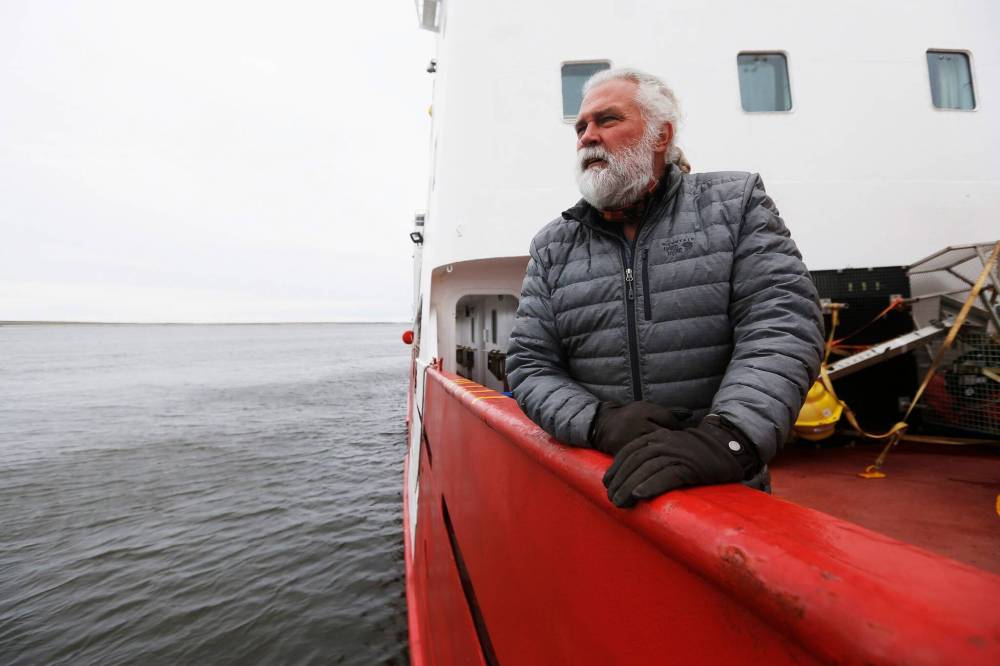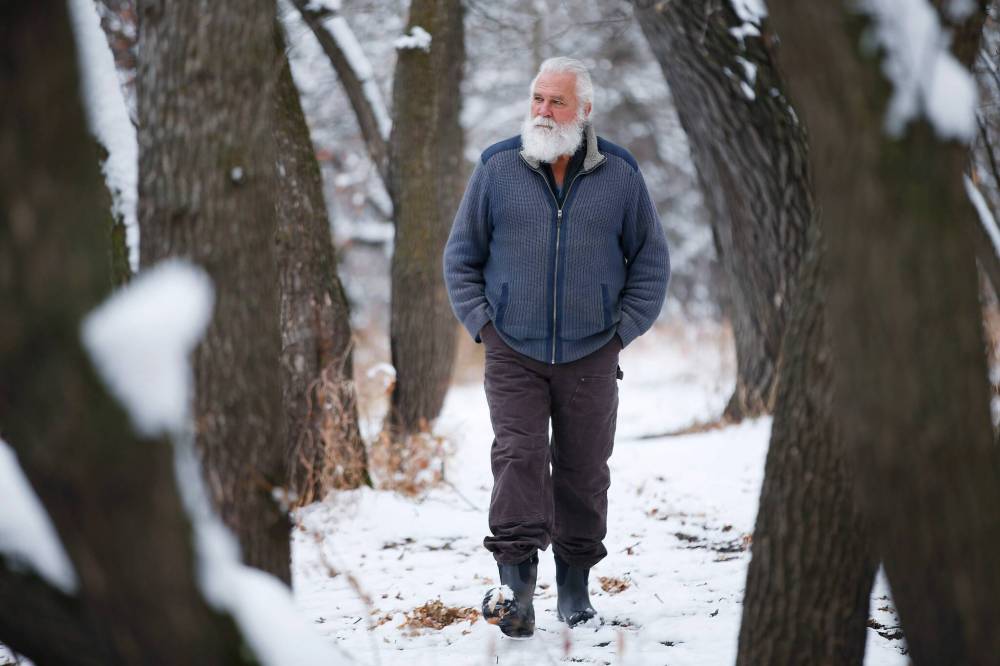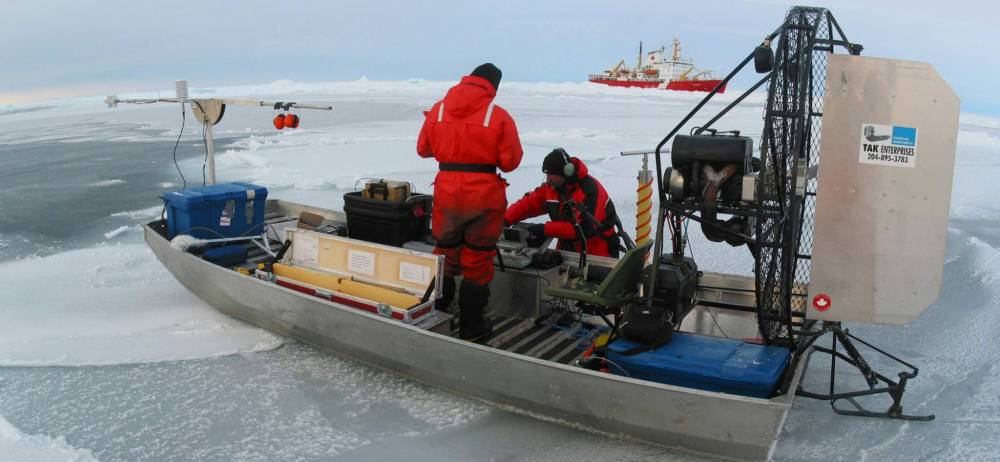‘Mourning the loss of a giant’
U of M Prof. David Barber, 61, was pillar of Arctic research community
Advertisement
Read this article for free:
or
Already have an account? Log in here »
To continue reading, please subscribe:
Monthly Digital Subscription
$1 per week for 24 weeks*
- Enjoy unlimited reading on winnipegfreepress.com
- Read the E-Edition, our digital replica newspaper
- Access News Break, our award-winning app
- Play interactive puzzles
*Billed as $4.00 plus GST every four weeks. After 24 weeks, price increases to the regular rate of $19.00 plus GST every four weeks. Offer available to new and qualified returning subscribers only. Cancel any time.
Monthly Digital Subscription
$4.75/week*
- Enjoy unlimited reading on winnipegfreepress.com
- Read the E-Edition, our digital replica newspaper
- Access News Break, our award-winning app
- Play interactive puzzles
*Billed as $19 plus GST every four weeks. Cancel any time.
To continue reading, please subscribe:
Add Free Press access to your Brandon Sun subscription for only an additional
$1 for the first 4 weeks*
*Your next subscription payment will increase by $1.00 and you will be charged $16.99 plus GST for four weeks. After four weeks, your payment will increase to $23.99 plus GST every four weeks.
Read unlimited articles for free today:
or
Already have an account? Log in here »
Hey there, time traveller!
This article was published 18/04/2022 (1277 days ago), so information in it may no longer be current.
An international community of climate scientists is mourning the loss of one of Canada’s most influential and well-respected Arctic researchers.
David Barber, a member of the Order of Canada for his contributions to sea ice climate science, died April 15 at 61, after suffering complications from cardiac arrest.
Barber, a proud Manitoban and professor at the University of Manitoba, has been described as a visionary for his ability to see the big picture and take on ambitious projects that have shaped collective understanding of climate change.

Barber leaves behind his wife Lucette, three children and two grandchildren. Several of his colleagues told the Free Press his love for his family was infused in all of his work.
Condolences are pouring in from colleagues all over the world, said U of M Prof. Feiyue Wang, a friend and longtime collaborator.
“His impact is not just in Manitoba,” Wang said Monday. “He’s really a pillar in the Arctic research community internationally. So I think we’re all, in this situation, mourning the loss of a giant.”
Barber made Manitoba — and Canada — a leader in Arctic research.
Over a 40-year career, he travelled the Arctic many times and focused attention on Churchill and Hudson Bay. He was the founding director of the Winnipeg-based university’s Centre for Earth Observation Science, scientific director of the Churchill Marine Observatory, and worked as chief scientist aboard the CCGS Amundsen — the formerly decommissioned icebreaker he helped get back in the water for research.
Tim Papakyriakou went to university with Barber and knew him for 32 years, first as a loyal friend and later as a colleague at U of M.
Barber was exactly the kind of guy you wanted to go on an Arctic expedition with, Papakyriakou said. Camping in insulated tents and travelling by snowmobile required reliability and practical perseverance — and Barber had plenty.

“If there was somebody you want to have your back in that environment, it was Dave Barber,” Papakyriakou said. “He was somebody who was incredibly astute, he had good instincts, he was clever, resourceful, all of the above… and those qualities extended throughout his career.”
Barber was awarded the Order of Canada in 2016 in recognition of decades of work studying Arctic climate change. He was a leader in the field, particularly because he helped shape scientific understanding of how climate change is affecting Arctic sea ice and led many major projects that increased other scientists’ access to the Arctic.
“He was a field scientist. He wasn’t just sitting in his office looking at some model. He was out there, actually seeing the change… I would say he was one of the first ones really noticing, with his own eyes, things are changing,” said U of M associate Prof. Jens Ehn.
Barber supervised Ehn’s PhD, starting in 2003, and together were part of multiple Arctic expeditions. Barber’s mentorship style was one that fostered independence, Ehn said: he’d establish a good team and trust them to do their work.
Part-academic and part-adventurer, Barber grew up in Dauphin and had an imposing stature but an easy manner.
He could communicate complex ideas so effectively the non-scientific world took note, colleagues said. He deeply understood how the science affected local communities, industries and human beings, which is part of what made him so influential.

“His skill to simplify concepts and see how everybody else’s piece of the puzzle fits together was absolutely critical in putting Canada back on the map, in terms of Arctic research presence,” Papakriakou said.
A celebration of life for Barber is scheduled for April 23, 1-3 p.m., in the U of M Fort Garry campus engineering atrium.
katie.may@freepress.mb.ca

Katie May is a multimedia producer for the Free Press.
Our newsroom depends on a growing audience of readers to power our journalism. If you are not a paid reader, please consider becoming a subscriber.
Our newsroom depends on its audience of readers to power our journalism. Thank you for your support.


